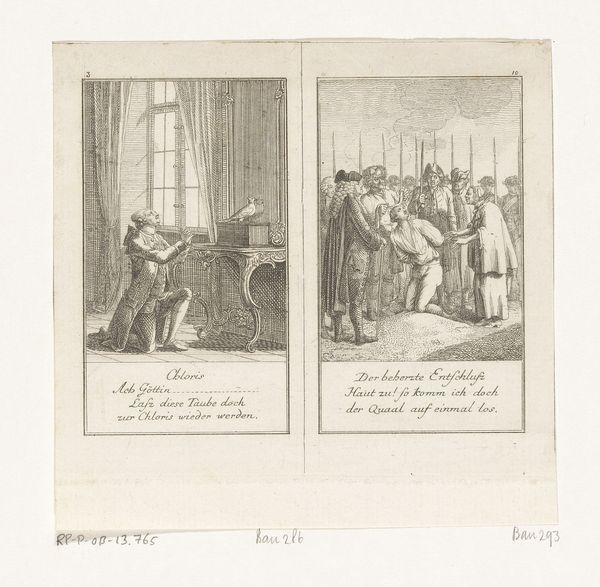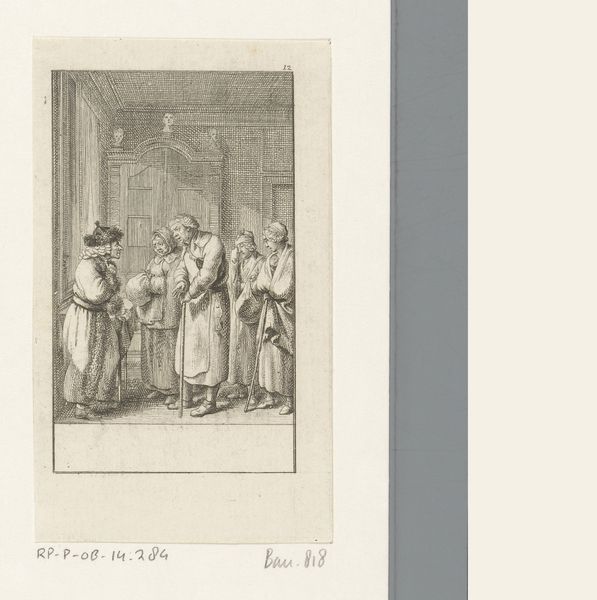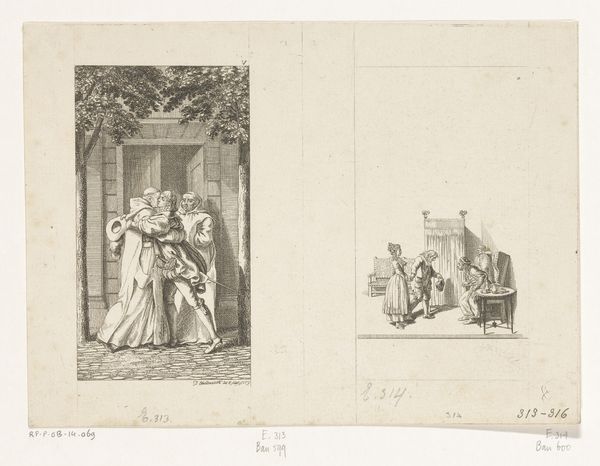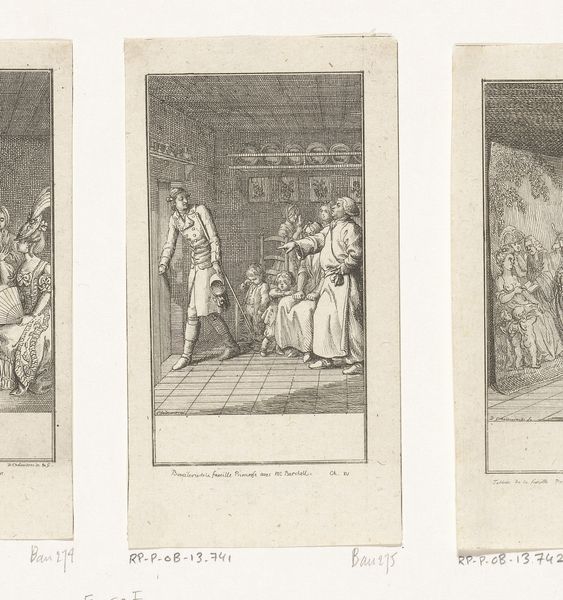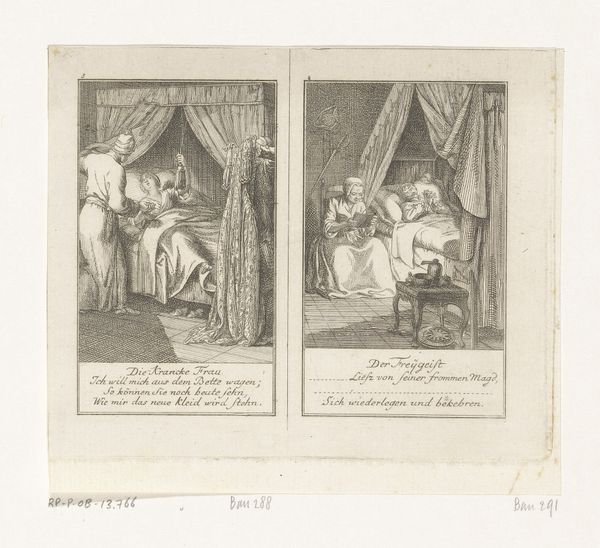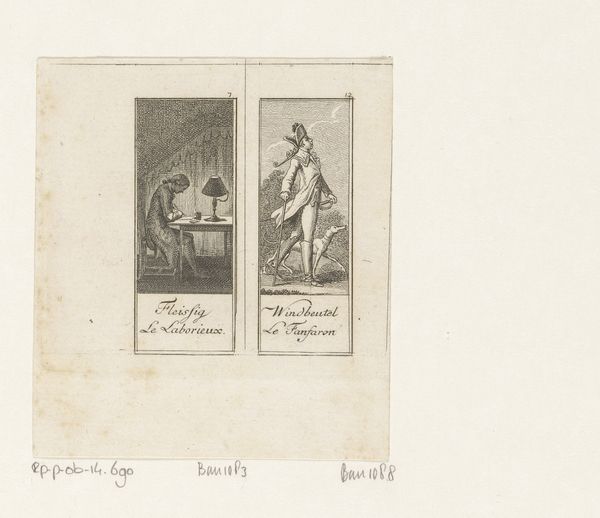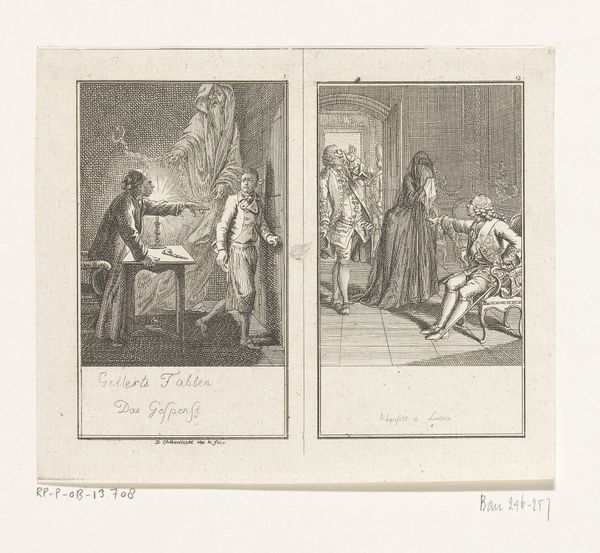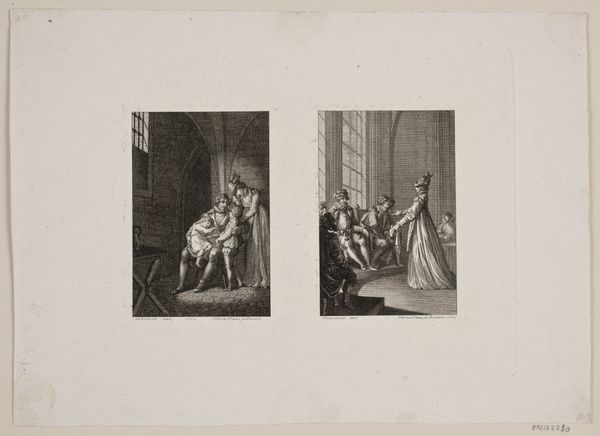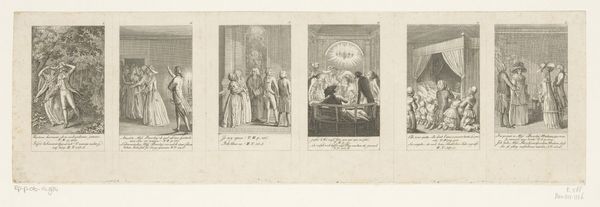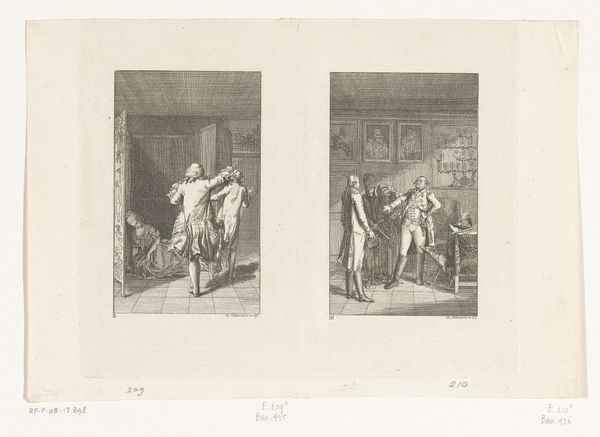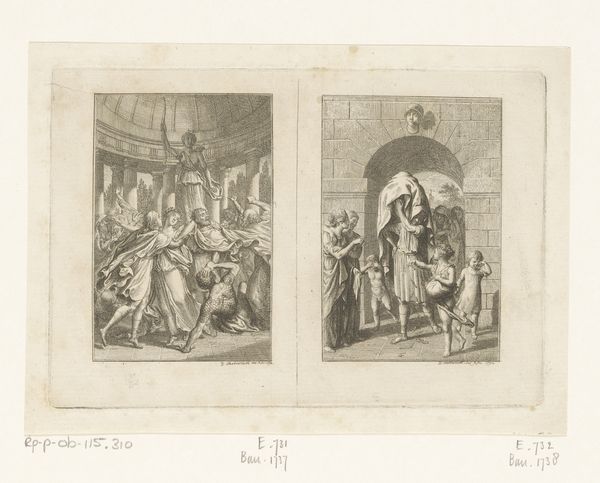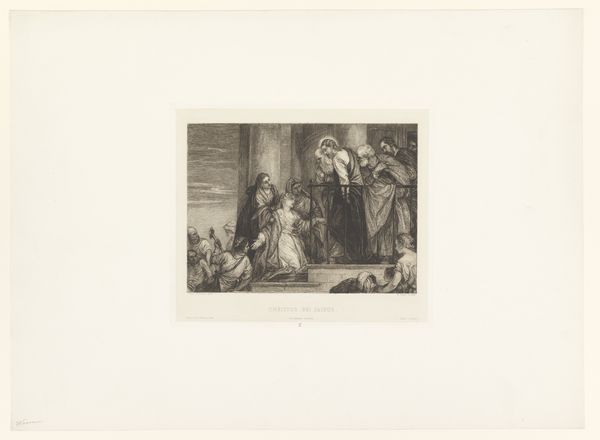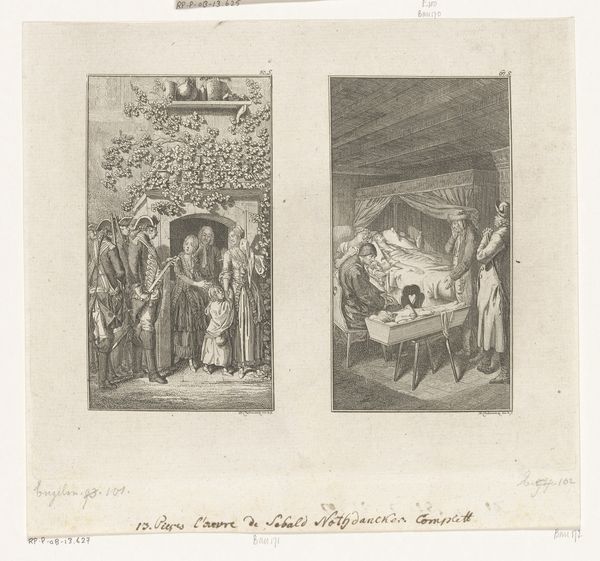
Dimensions: height 129 mm, width 145 mm
Copyright: Rijks Museum: Open Domain
This is an engraving titled "Two Wedding Proposals" made by Daniel Nikolaus Chodowiecki in the late 18th century. The process of engraving involves meticulously incising an image onto a metal plate, which is then inked and pressed onto paper to create a print. The stark contrast between the black lines and the white paper is a direct result of this method. Chodowiecki's lines are economic, but they delineate social class. Look at the details in each panel, and think about the labor involved in producing food versus enforcing the law. On the left, we see a butcher with his wife, a side of beef hanging to the left, while on the right, a bailiff clasps hands with a formally dressed couple. The act of engraving itself carries social meaning; it allowed for the mass production and dissemination of images, making art more accessible to a wider audience. By focusing on the methods and materials of production, we can see how this print participates in broader social and economic systems, challenging our traditional notions of art and its value.
Comments
No comments
Be the first to comment and join the conversation on the ultimate creative platform.

